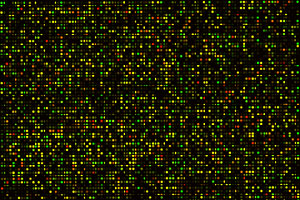And I would guess that the CDPH is not going after purely recreational companies like those involved in ancestry. I can't imagine why a doctor would order that kind of test. If these letters target ancestry companies, then whatever laws are involved should be changed.
There are also companies that comply with the current California laws. One of the most prominent is DNA Direct. This company follows all of the rules of the state, only offers well validated tests that are performed in a CLIA lab, and provides genetic counseling so people can understand the results they get.
But what about the companies between DNA Direct and ancestry testing services? Although we don't know for sure, the CDPH seems to have targeted many newer companies that look at hundreds of thousands or even millions of DNA differences at once throughout a person's DNA.
The three main companies that I know about that are in this gray region are Navigenics, 23andMe, and deCODEme. Navigenics is a different sort of beast from the other two in that it only provides information on DNA differences that have a well established link to a disease and they also provide genetic counseling. The other two can really be thought more of as recreational genomics at this point.
23andMe and deCODEme give a client all of their information and then tell the client what is known about each DNA difference. They offer ancestry, trait, and disease information bundled up in a single 1000 dollar test.
These companies count on the consumer being able to digest all of that data and recognize what is a strong and/or important correlation and what is not. This is the point where a group that includes the government, doctors, and many academics differ with these companies.
Once we make sure that the testing is done well, the question really boils down to whether or not the consumer can handle all of the information*. Can consumers interpret these kinds of results and know when to seek help and when not to?
The answer is that some can and some can't. So how do we protect those who can't but still allow people access to their own DNA? Or should we protect consumers at all from their own DNA information?
*There is also the stipulation about a doctor ordering the test but frankly I don't get that one and am not sure it should be part of any consumer protection.
Copy of the letter from Wired Science
37.332 -121.903
 So much information, so little understandingOn June 9, the California Department of Public Health (CDPH) sent letters to 13 different direct-to-consumer genetic testing companies telling them that they were not in compliance with California laws and needed to stop providing testing. The two main issues appear to be:
So much information, so little understandingOn June 9, the California Department of Public Health (CDPH) sent letters to 13 different direct-to-consumer genetic testing companies telling them that they were not in compliance with California laws and needed to stop providing testing. The two main issues appear to be: